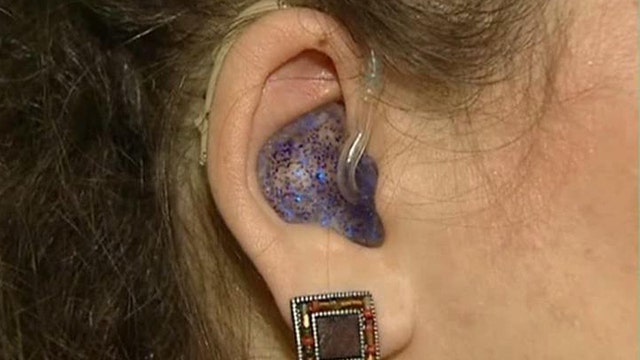Hearing loss is one of the most common disorders affecting aging Americans.
Approximately 18 percent of American adults aged 45-64 years, 30 percent of adults aged 65-74 years and 47 percent of adults over age 75 have some degree of hearing impairment.
Sensorineural hearing loss occurs as a result of damage to the inner ear or auditory nerve. This kind of hearing loss is usually permanent, and conductive – when sound waves cannot reach the inner ear, often because of earwax buildup, fluid buildup or a damaged eardrum -- which can be treated with surgery or other medical procedures.
Presbycusis hearing loss is the gradual loss of hearing as a person ages and most often affects those over age 50.
Risk factors, other than increasing age include a family history of hearing loss, occupational noises ( like music, construction or transportation), recreational noises (like fireworks, motorcycles or loud music), and some medications or illnesses.
Presbycusis often occurs as a direct result of damage to the inner ear from a head injury or continuous exposure to loud noise, ear wax buildup, ear infections, abnormal growths, circulation problems or damage to the eardrum.
You can use the word “MONDAY” to help remember some of the causes of hearing loss:
- M: Meniere’s Disease – a disorder of the inner ear which causes spontaneous episodes of vertigo, fluctuating hearing loss, ringing in the ear or fullness/pressure in inner ear.
- O: Ototoxicity – ear “poisoning” resulting from exposure to drugs or chemicals that damage the inner ear or nerve.
- N: Noise – greater than 80 decibels for long periods of time (consider that a normal conversation is approximately 60 decibels).
- D: Diabetes – hearing loss is twice as common in diabetics compared to those without diabetes, likely because long-term high blood glucose levels damage the vessels and nerves in your ears.
- A: Acoustic Neuroma – a benign and often slow-growing tumor that develops on the main nerve that runs from your inner ear to your brain.
- Y: Years – as your age increases, so does your risk for hearing loss.
Unfortunately, some people may have a difficult time admitting they’re experiencing difficulties hearing. Sometimes, people will avoid interactions and become withdrawn in order to avoid the frustrations and embarrassment of hearing loss and not understanding conversations. This can further lead to depression, anxiety or a misperception of others’ emotions.
If you or someone you know has difficulty hearing, make an appointment to see your doctor. Treatments like hearing aids, training and medications are available, but you may have to try a couple solutions before you find the best fit for you.
Seeking treatment to improve hearing can allow you to fully enjoy the company of your friends and family, increase your self-confidence, grow closer to your loved ones and improve your overall quality of life.









































